English Worksheets for Kindergarten
Introduction:
Welcome to the world of English worksheets for kindergarten, a dynamic learning resource designed to foster language development in young minds. These thoughtfully crafted materials aim to engage and educate children in the foundational aspects of English, incorporating essential vocabulary, basic grammar, and interactive activities. With a focus on play-based learning, these worksheets provide a fun and effective way for kindergarteners to build a strong linguistic foundation, setting the stage for a lifetime of effective communication. Explore the exciting realm of English worksheets for kindergarten and watch as your little learners embark on a journey of language discovery.
English learning for kindergarten typically involves a combination of fun and interactive activities to build foundational language skills. Worksheets can be a useful tool to reinforce these skills. Here’s a brief explanation:

Color by Sight Words Worksheets
Alphabet Recognition:
English Worksheets for Kindergarten often include exercises to help kindergarteners recognize and trace letters of the alphabet.
Phonics:
Simple phonics exercises can introduce letter-sound relationships, helping kids understand how to read and write basic words.
Vocabulary Building:
English Worksheets for Kindergarten may feature pictures and words to expand a child’s English vocabulary. Worksheets introduce children to new words and concepts, expanding their vocabulary. This is vital for effective communication and comprehension.
Reading and Comprehension:
Basic reading exercises can be included to develop early reading skills, focusing on simple sentences and short stories.
Writing Practice:
Children can practice writing letters, words, and short sentences to improve their handwriting and composition skills.
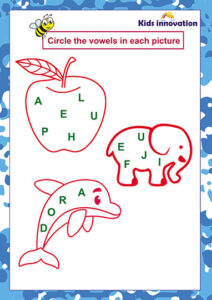
Listening and Speaking:
Engaging worksheets for Kindergarten can encourage listening and speaking activities, such as matching pictures to words or simple dialogues.
Creative Activities:
Some English worksheets for Kindergarten include coloring, drawing, or storytelling to make the learning process enjoyable and creative.
Kindergarten All About Me Worksheet
OverallGuides.com provides exclusive worksheets for kids, available for free download in printable PDF format.
free kindergarten tracing & painting worksheets
Grammar and Sentence Structure in English Worksheets for Kindergarten:
Kindergarten English worksheets might introduce basic grammar concepts , sentence structure and grammar rules, which they will build upon in kindergarten.
Overall, English learning for kindergarteners with English worksheets for Kindergarten should be age-appropriate, enjoyable, and aimed at building a strong foundation in language skills.
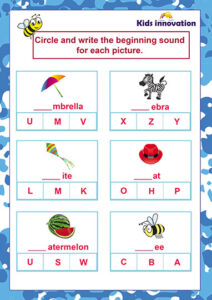
free kindergarten tracing & painting worksheets
Practicing English skills in preschool through worksheets is essential for preparing children for kindergarten and beyond. While I can provide you with an overview of the reasons why this practice is crucial, I’ll keep it concise due to the word limit.
Language Development:
Early exposure to English worksheets for Kindergarten helps children build a strong foundation in language. They learn to recognize letters, understand their sounds, and form basic words.
Reading Readiness:
English worksheets for Kindergarten often include activities that promote pre-reading skills such as recognizing sight words and understanding simple sentences. These are crucial for kindergarten.
Writing Skills:
Children practice holding a pencil, making controlled movements, and forming letters, which are essential for handwriting development.
Phonemic Awareness:
Worksheets help kids recognize and manipulate sounds in words, a fundamental skill for reading and spelling.
Listening and Comprehension:
Following instructions on worksheets enhances a child’s listening and comprehension skills, essential for classroom success.
Math and Cognitive Skills:
Many English worksheets for Kindergarten incorporate math concepts, such as counting or recognizing patterns, which contribute to overall cognitive development.
Problem Solving:
Worksheets often include puzzles and problem-solving tasks that help develop critical thinking and reasoning skills.
Fine Motor Skills:
Completing worksheets requires precise hand-eye coordination, which is valuable for many activities in school.
Independence and Focus:
Working on worksheets encourages children to concentrate on tasks independently, fostering a habit of sustained attention.
Parental Involvement:
Worksheets can be a useful tool for parents to engage with their children in a constructive, educational manner, reinforcing learning at home.

Confidence Building:
As children complete worksheets and see their progress, it boosts their self-esteem and confidence in their abilities.
Smooth Transition to Kindergarten:
A preschooler who has practiced English through English worksheets for Kindergarten is better equipped to handle the curriculum in kindergarten, reducing the potential for academic struggles.
Early Literacy Skills:
Worksheets lay the foundation for early literacy skills, setting the stage for a lifelong love of reading and writing.
In conclusion, English Worksheets for Kindergarten play a critical role in a child’s educational journey by developing fundamental language and cognitive skills. They help prepare children for the challenges of kindergarten and foster a love for learning. While not the sole method of learning, they are a valuable tool in early education.
“Foundations of Language: Engaging English Worksheets for Kindergarten:
Foundations of Language:
Indicates that the worksheets focus on building fundamental language skills.
Engaging English Worksheets for Kindergarten:
Emphasizes that the activities are designed to capture the interest and involvement of kindergarten learners.
For Kindergarten:
Specifies the target audience, indicating that the content is tailored to the developmental stage and needs of kindergarten students.
Kindergarten Alphabet Worksheet



Kindergarten English Jumble Words Worksheet Practice: Methods and Necessity
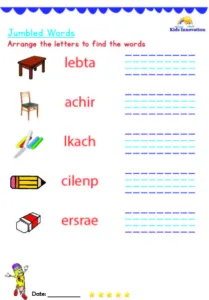
Kindergarten is a crucial stage in a child’s educational journey. It’s a time when they begin to grasp the fundamentals of language, including reading, writing, and comprehension. One effective method to enhance their language skills is through jumble words worksheets. English worksheets for Kindergarten, designed to unscramble letters into meaningful words, play a pivotal role in a child’s development. In this article, we will explore the methods of using jumble words worksheets for kindergartners and discuss their necessity in early education.
Methods of Kindergarten English Jumble Words Worksheet Practice
Age-Appropriate Words: Kindergarten is the foundation of a child’s educational journey. To ensure that jumble words worksheets are effective, it’s essential to use age-appropriate words. These words should be simple and easy to understand, aligning with the child’s current vocabulary level. Common sight words, short words, and three-letter words are ideal for this stage.
Gradual Complexity: As the child progresses, gradually introduce more complex words and longer sentences. This method allows them to build their skills incrementally, enhancing their ability to unscramble and comprehend more challenging language constructs.
Picture Association: To make the learning process more engaging and effective, associate pictures with the jumble words. For example, if the jumble word is “cat,” include an image of a cat next to it. This visual aid helps children connect the word with its meaning.
Color-Coding: Use color-coding to make jumble words more engaging. Assign different colors to vowels and consonants, making it easier for children to identify and organize the letters correctly. This method not only enhances their word-forming skills but also introduces the concept of vowels and consonants.
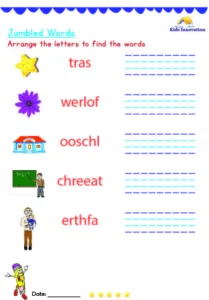
Phonics Integration: Integrate phonics lessons with jumble words worksheets. This helps children understand the sounds of letters and how they form words. For instance, when unscrambling the word “dog,” incorporate a phonics element by asking the child to say the sounds of each letter and then blend them together to form the word.
Interactive Games: Turn jumble words into interactive games. Create a friendly competition within the classroom, asking children to solve jumble words against the clock. This gamification approach makes learning fun and engaging.
Progress Tracking: Keep track of a child’s progress. Maintain a record of their ability to solve jumble words and their comprehension of the words they unscramble. This helps teachers and parents understand which areas need improvement.
Encourage Creativity: Allow children to create their own jumble words for their classmates to solve. This not only reinforces their understanding of word structures but also encourages creativity and cooperation.
Necessity of Jumble Words Practice in English Worksheets for Kindergarten:
Vocabulary Expansion: Jumble words worksheets are an excellent tool for expanding a child’s vocabulary. By exposing them to a variety of words, English worksheets for kindergarten help kindergartners learn new words and their meanings.

Reading Skills: Jumble words worksheets are closely related to reading skills. When a child unscrambles words, they are practicing reading and recognizing words in a jumbled form. This reinforces their ability to read and comprehend written text.
Spelling and Writing Proficiency: Unscrambling jumble words requires a child to correctly arrange letters, thereby enhancing their spelling and writing skills. This practice is instrumental in developing their ability to write words correctly.
Cognitive Development: Jumble words worksheets are not merely about language; they also promote cognitive development. The process of unscrambling requires logical thinking and problem-solving, essential skills for a child’s overall development.
Phonics Awareness: Jumble words can be used to teach phonics. By integrating the sounds of letters into word unscrambling activities, children become more aware of how letters and sounds work together to form words.
Improved Concentration: Jumble words worksheets demand concentration and attention to detail. This fosters improved concentration skills in kindergartners, a valuable skill for any form of learning.
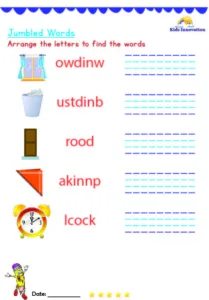
Confidence Building: Successfully solving jumble words can boost a child’s confidence. As they master these worksheets, they gain a sense of accomplishment and a positive attitude towards learning.
Fundamental Literacy Skills: Jumble words worksheets lay the foundation for fundamental literacy skills. These skills are essential for a child’s progress in reading, writing, and overall communication.
Interaction and Social Skills: When used as a group activity, jumble words worksheets encourage interaction and the development of social skills. Children can work together, help each other, and learn the importance of cooperation.
Preparation for Higher Education: The skills developed through jumble words English worksheets for kindergarten set the stage for success in later educational stages. A strong foundation in language and literacy is crucial for academic success.
Kindergarten English jumble words worksheets offer an effective and engaging way to enhance a child’s language skills. When implemented with the right methods, they provide numerous benefits, including vocabulary expansion, reading skills development, spelling and writing proficiency, cognitive development, phonics awareness, improved concentration, confidence building, and the development of fundamental literacy skills.
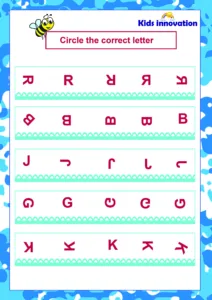
These worksheets are not just a necessary educational tool; they are an essential component of preparing kindergartners for higher education. By starting with simple jumble words and gradually progressing to more complex language constructs, educators and parents can provide young learners with the skills they need to succeed in their academic journey and beyond.

What letter comes before ‘B’ in the alphabet?
A) A
B) C
C) D
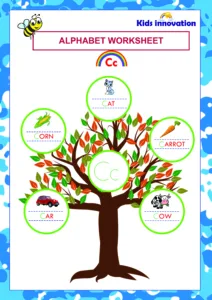
Which of the following words starts with the sound ‘cat’?
A) Dog
B) Car
C) Ball
What is the opposite of ‘big’?
A) Small
B) Red
C) Fast

Which word rhymes with ‘hat’?
A) Dog
B) Bat
C) Sun
free kindergarten tracing & painting worksheets
What color is the sky on a sunny day?
A) Green
B) Blue
C) Yellow
What shape has four equal sides and four right angles?
A) Triangle
B) Circle
C) Square

What comes after ‘one’ when counting?
A) Three
B) Two
C) Five
Which animal says “meow”?
A) Dog
B) Cow
C) Cat
What do we use to write on paper?
A) Shoes
B) Pencil
C) Banana
What do you wear on your head to keep warm in the winter?
A) Socks
B) Hat
C) Gloves
Unlocking Young Minds: Dive into the World of Learning with Our Kindergarten Quiz
Play Kindergarten Quiz now and witness the joy of learning unfold in every click and answer. Let’s make education a celebration for your little ones!
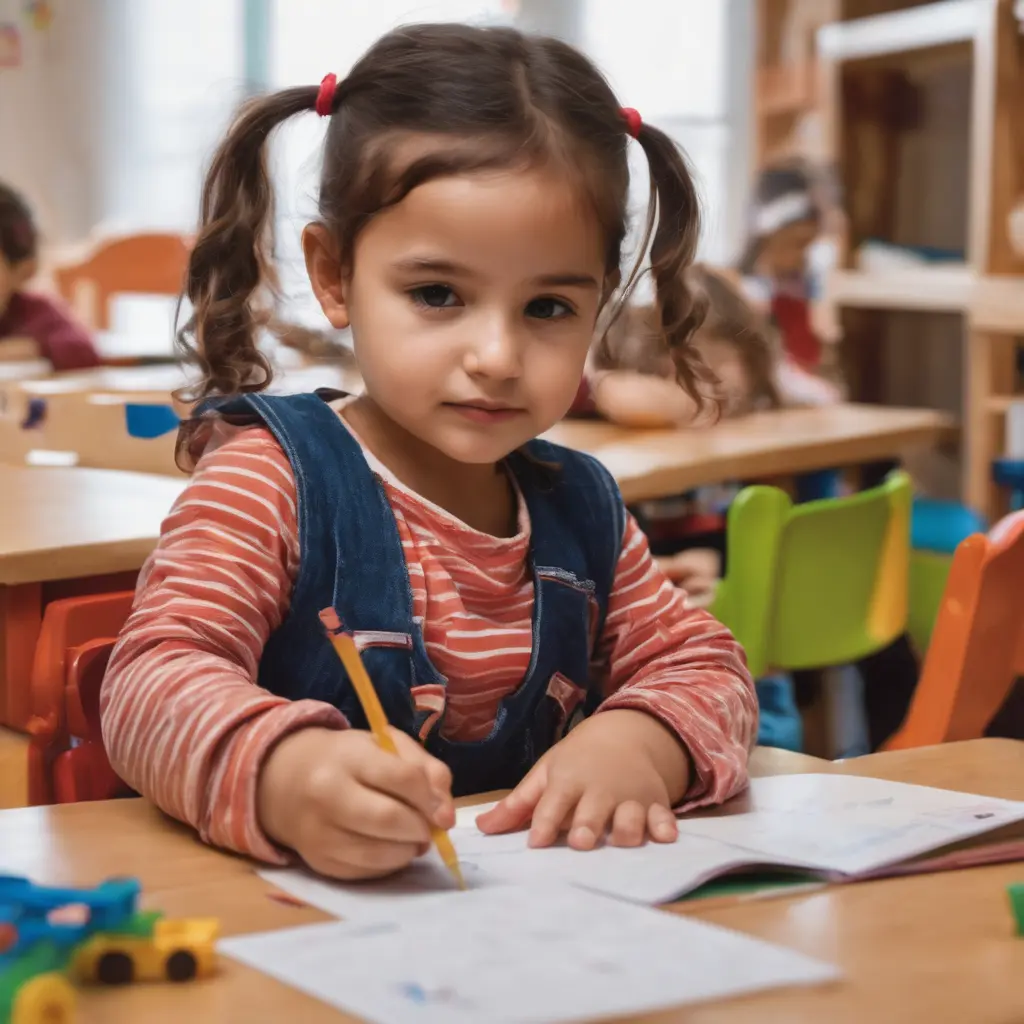
More English Worksheets for Kindergarten in Shutterstock Click Here
https://www.shutterstock.com/search/english-worksheets-for-kindergarten
 Skip to content
Skip to content 

4 thoughts on “English Worksheets for Kindergarten”